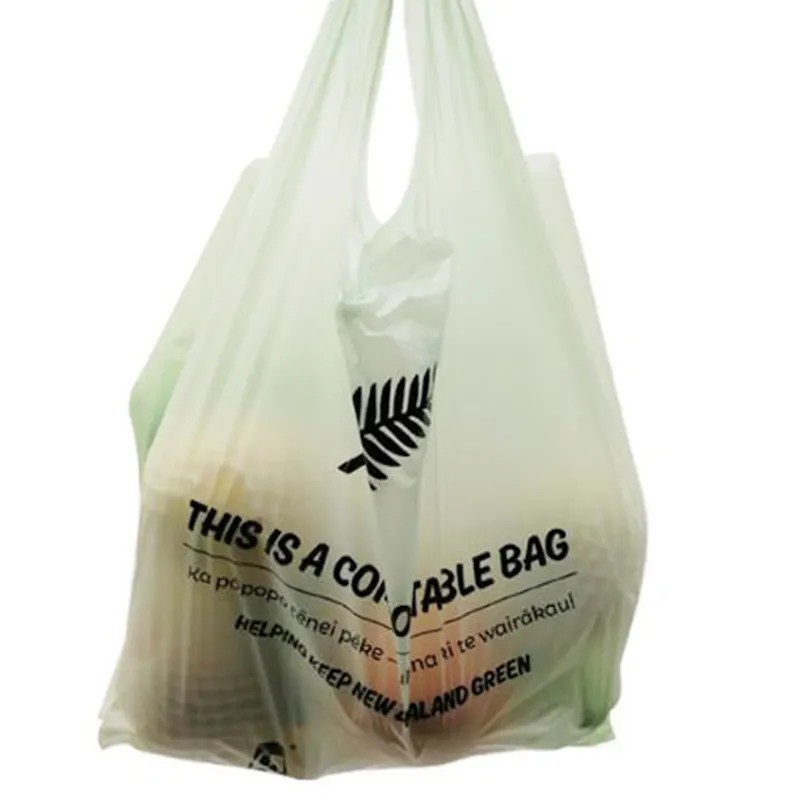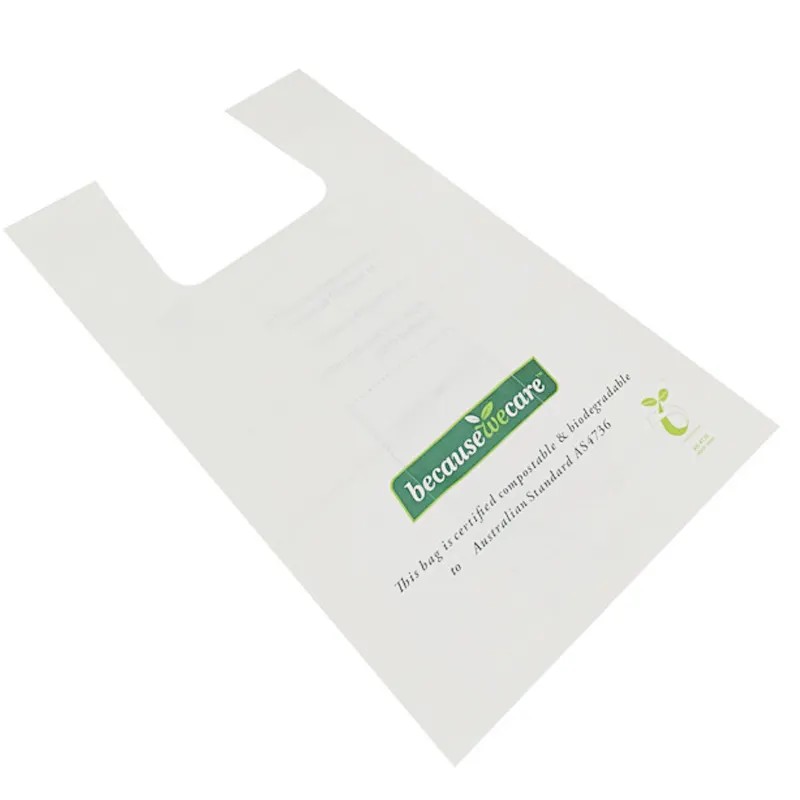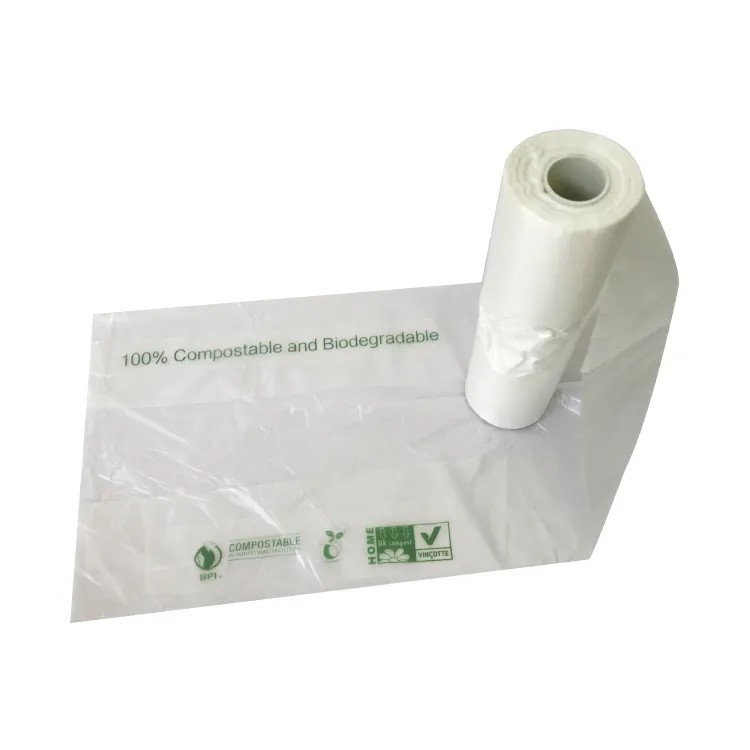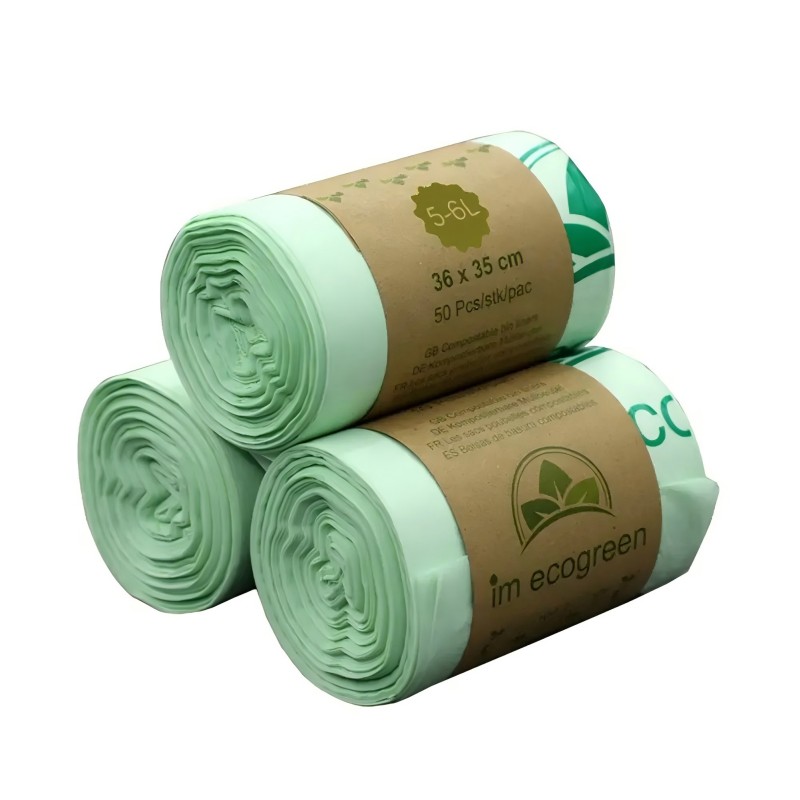How Do Compostable T-Shirt Bags Break Down in Nature?
Compostable T-shirt bags have become an essential part of eco-friendly consumer practices, helping to reduce plastic pollution and promote sustainable habits. This article delves into the process by which these bags decompose, the conditions necessary for their breakdown, and the ecological impacts associated with their use.
1. Composition of Compostable T-Shirt Bags
Compostable T-shirt bags are typically made from biodegradable materials such as:
Polylactic Acid (PLA): Derived from fermented plant starch (e.g., corn, cassava).
Polyhydroxyalkanoates (PHA): Produced by microorganisms processing organic matter.
Starch-based blends: Often mixed with other natural polymers to improve strength.
These materials are designed to mimic the functionality of conventional plastic bags but break down more readily under specific conditions.
2. Mechanism of Decomposition in Nature
The breakdown of biodegradable T-shirt bags occurs through a natural process facilitated by microorganisms. Here’s a step-by-step explanation:
a. Microbial Action
Bacteria and Fungi: These organisms digest the bag's material by secreting enzymes that degrade the polymers into smaller molecules.
Biochemical Reactions: Enzymatic action helps convert complex polymers into simpler organic substances such as water, carbon dioxide (CO₂), and biomass.
b. Environmental Factors
The rate and success of decomposition depend heavily on environmental conditions:
Temperature: Compostable bags break down faster in higher temperatures (e.g., those found in industrial composting facilities, typically 50–70°C).
Moisture Levels: Adequate moisture is crucial for microbial activity.
Oxygen Availability: Aerobic conditions (plenty of oxygen) support more efficient breakdown compared to anaerobic conditions, which might slow the process and produce methane.

3. Types of Composting: Industrial vs. Home
Industrial Composting:
Controlled Environment: Industrial facilities provide optimal conditions with managed temperature, humidity, and aeration.
Time Frame: Bags can decompose fully within 90–180 days.
Outcome: The end product is nutrient-rich compost, which can be used to enrich soil.
Home Composting:
Lower Temperatures: Decomposition in a home compost pile occurs at lower temperatures (20–40°C), extending the breakdown period.
Partial Decomposition: Some bags may take several months to a year or more, depending on the specific material blend and climate.

4. Biodegradability vs. Compostability
While these terms are often used interchangeably, they have distinct meanings:
Biodegradable: Material can break down naturally over time, but this may not occur fully or quickly.
Compostable: Designed to decompose under specific composting conditions and leave no toxic residue.
Key Point: Compostable bags must meet stringent standards such as those outlined by ASTM D6400 or EN 13432 to ensure that they decompose fully without leaving harmful residues.

5. Environmental Impact of Compostable T-Shirt Bags
Benefits:
Reduced Plastic Pollution: Compostable bags lessen the volume of persistent plastics in landfills and oceans.
Lower Carbon Footprint: Plant-based production emits less CO₂ compared to fossil-fuel-based plastics.
Improved Soil Health: The byproduct of composting enhances soil structure and fertility.
Challenges:
Mismanagement: If improperly disposed of, compostable bags can behave like traditional plastics, persisting in landfills due to a lack of appropriate conditions for decomposition.
Energy Use: Production of some compostable polymers still consumes considerable energy and resources.

6. Steps to Ensure Effective Decomposition
For consumers and businesses aiming to maximize the benefits of using compostable T-shirt bags:
Separate Waste Correctly: Ensure biodegradable bags are placed in designated compost bins rather than general trash.
Composting Facilities: Use industrial composting facilities when possible for faster and complete decomposition.
Educate on Disposal: Awareness campaigns can inform users of the proper disposal methods and limitations of home composting.
Compostable T-shirt bags represent a step forward in sustainable packaging solutions. By understanding how these bags break down in nature and ensuring they are disposed of properly, we can minimize environmental impacts and contribute to a healthier planet. The combination of scientific innovation and consumer responsibility is key to making compostable products an effective alternative to traditional plastics. This knowledge empowers individuals and industries to make informed decisions that align with eco-friendly practices, promoting a circular economy where waste becomes a valuable resource.






